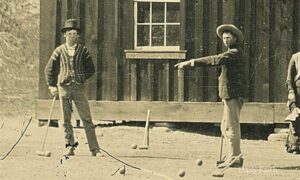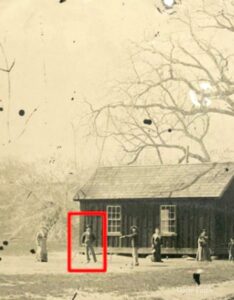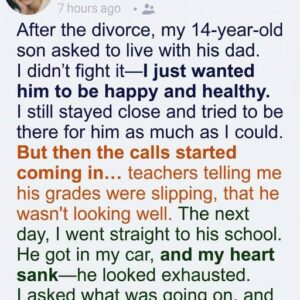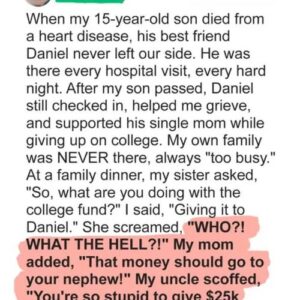The man who stumbled onto a stunning image of Billy the Kid playing croquet advises him to look around.
“I hope this inspires others to delve into trunks and attics in search of lost gems,” Randy Guijarro said to the Guardian on Monday.
A 45-inch-long picture of Billy the Kid playing croquet from 1878.
Once only worth $2, a photograph of Billy the Kid playing croquet that was discovered at a thrift shop has now sold for millions of dollars.
In 2010, Guijarro spent $2 on three four-by-five-inch tintypes from a Fresno, California, antique store. Valued at many million dollars today.
The telecommunications expert and his wife Linda have stated that they plan to use some of the money from their unexpected discoveries to finance more exploratory efforts.
We might gain by getting a new car.

We want to investigate forgotten historical occurrences both domestically and abroad.
We enjoy exploring the world together. The chase is an amazing spectacle.
Billy the Kid, a Wild West legend, was the man leaning on the mallet, and the other people in the picture were members of his gang, the Regulators, playing croquet in New Mexico in 1878, he learned after looking at the photo under a microscope at home.
Only the second authenticated image of the offender has ever been captured; it is worth at $5 million.
A Kevin Costner-hosted National Geographic special that detailed the five years of research and investigation into its truth was aired on Sunday.
It was just amazing. “It was incredibly difficult for us to observe that,” said 54-year-old Guijarro. We hope the voyage was delightful because we have been completely upfront and honest with you.
He continued by saying that the investigation was hindered by false leads and mistrust, leaving the two uneasy and unsure of whom to believe.
There are both joyful and sad times. It had been a protracted and lonely journey. The picture resembled something out of The Twilight Zone. There is no question—too good to be true.
The name “Billy the Kid” immediately brings to mind images of the Wild West and the iconic New Yorker who, after a harsh but brief career as an outlaw, was shot by Pat Garrett, the sheriff of Lincoln County, at the age of 21.

Yet, some historians claim that he was only responsible for nine homicides. The sole remaining portrait of him, which depicts him resting with a gun around the year 1880, sold in 2011 for $2.3 million (£1.5 million).
Guijarro has spent most of his life amassing various artifacts, including coins, sports cards, comic books, and antique photographs, together with his wife, who shares his enthusiasm for collecting.
He saw Fulton’s Folly Antique Collective while wandering in Fresno’s Tower district on his way home from work one late summer night in 2010.
Guijarro was instructed to approach two people who were emptying a storage unit and trying to get rid of its contents, according to the vendor, and were carrying “junk crates.”
He put out a $2 suggestion and selected three pictures, some of which showed croquet players and other historical scenes. They used force to take it.
Guijarro just vaguely remembers them. I can’t even remember who they were anymore because everything has gotten so fuzzy.
The croquet ball’s appearance pleased him, but it took him a week of careful examination to recognize the legendary robber.
The statement was in response to the man’s attire, demeanor, and the fact that he was standing on a croquet stick: “You could hand him a Winchester rifle.” Whoa, that’s Billy the Kid, I thought.
“A wonderful, smart woman,” he calls Linda, who was hired to investigate the other Regulators.
She was able to communicate with Charlie Bowdre and Tom O’Folliard, two other croquet players, thanks to the internet. “That was fantastic,” stated Guijarro.
Thanks to the efforts of scholars, collectors, experts in facial recognition, and others, the ruins of the schoolhouse in Chavez County, New Mexico, were found. The 18 people in the image were all identified.
Little more than a month after the gang had participated in the deadly Lincoln County quarrel, the photo was discovered to have been taken shortly after a wedding in 1878.
The California-based numismatics company Kagin’s Inc., which is now looking for a private buyer, has insured it for $5 million.
Guijarro said, “We’re not counting our chickens before they hatch,” despite the curiosity.
After that, he and Linda plan to buy a new automobile, settle debt, help a few close friends and family members, and start planning more treasure hunts.
He asserts that they virtually always sell the stuff they acquire, demonstrating that they are not hoarders. Hunting is necessary because if we didn’t, “we’d be sitting on a hundred acres of stuff else.”





